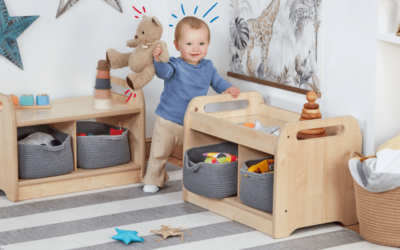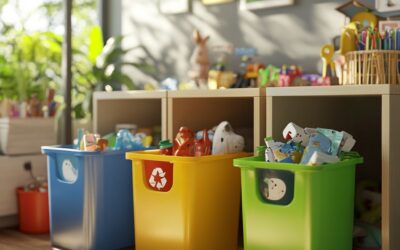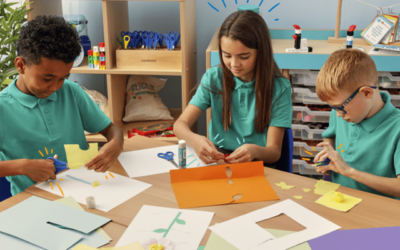Laying the Groundwork for Early Maths
Early math education is vital for a child’s cognitive development, laying the groundwork for future mathematical understanding. Integrating math activities into both classroom and home settings can be engaging and enjoyable. Here are some top tips, activities, and ideas for teaching early maths:
1. Counting, Number Recognition, and Subsitising:
- Use everyday objects like toys, fruits, or household items to teach counting and subsitising.
- Play number recognition games with cards, resin numbers, or numbers in the environment such as numbers on house doors. You could even stick numbers onto toys/stairs in the home.
- Utilise resources like Numicon and multi-link cubes in the classroom for both home and school.
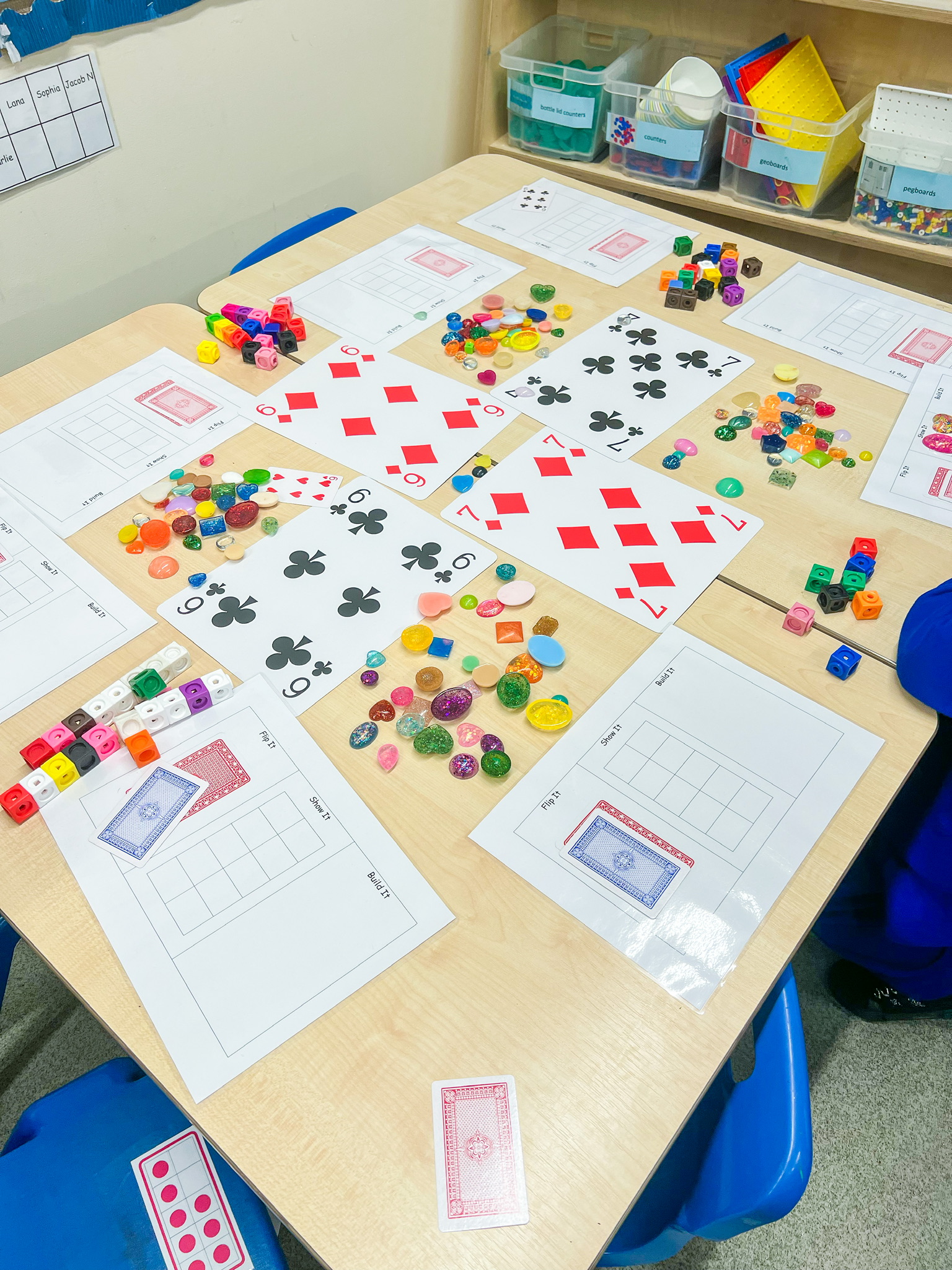
2. Combining and Comparing:
- Make math fun by incorporating it into activities like “baking” or “shopping,” sharing out items onto different plates to compare quantities.
3. Shapes, Spatial Awareness, and Positional Language:
- Point out shapes in the environment and play games with blocks or puzzles to develop spatial skills.
- Teach positional language through small-world scenes.
- Cars are the perfect resources to teach children early math, you can teach ordinal numbers (1st, 2nd, 3rd), positional language (next to, behind, under, in between) and distance (near, nearest, close, closest, far, furthest etc.)
- Building with blocks helps with spatial awareness and problem-solving skills.
4. Measurement:
- Use measuring tools like cups, spoons, or hands during cooking or crafts.
- Compare sizes of toys using language like big, small, tall, etc.
- Explore weight using food items in the kitchen.
- Explore height and length by building towers, gardening and using play dough.
5. Patterns and Sequences:
- Go on a nature walk and collect leaves/sticks/flowers to create patterns or continue the sequence.
- Use music or clapping games with repeating patterns.
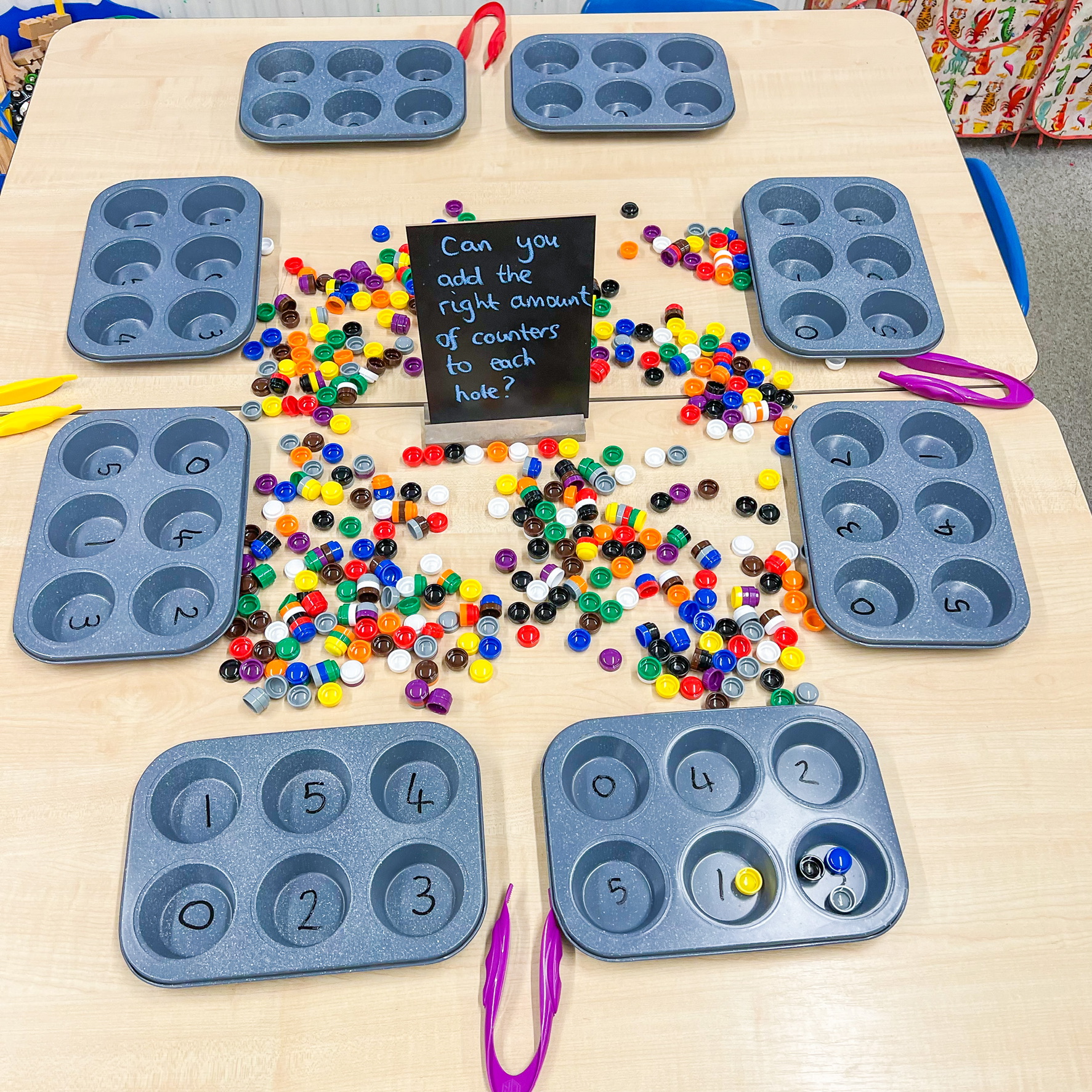
6. Time and Calendar Skills:
- Use visual calendars to mark events and activities, like family birthdays.
- Introduce basic time concepts like “morning,” “afternoon,” and “evening,” and use visual timetables or now and next boards in the classroom.
7. Top 10 Resources for Early Maths Education:
- Numberblocks multilink cubes
- Resin numbers
- Number cards/bean bags
- Puzzles
- Numberblocks blobs
- Five/Ten frames
- Numicon
- Building bricks
- Small world figures, trees and buildings
- Cars
It is important to create a comfortable environment where children can enjoy ask questions and develop curiosity. As parents, carers, and educators, be open to answering their questions and explaining math concepts simply. Foster a positive attitude towards math by incorporating it into daily discussions and play. By making math enjoyable and age-appropriate through play, you can help children build a strong foundation in math at an early age.
This article was written by Molly Howard (Create Make and Play). For more on introducing math learning to early years, have a read of our Learning Mathematics through Pretend Play article.
Related blogs
Your Guide to the School-Based Nursery Capital Grant
What is the School-Based Nursery Capital Grant? For schools aiming to enhance their nursery facilities, the School-Based Nursery Capital Grant provides a simple funding solution. This grant is open to eligible state-funded primary schools in England that...
What Goes In, Must Go Out
Creating a Circular Economy in Your Nursery Author: Nick Corlett Sustainability Manager at LEYF Sustainability is more than a trend—it’s a shared responsibility, and the nursery is the perfect place to nurture these skills. Every day...
Top tips to create a SEND-Friendly Primary School Classroom
Author Lindsay Robinson Lindsay Robinson has been a primary school teacher for 23 years and is passionate about achieving the very best outcomes for children through quality first teaching and experiences. I remember receiving very little guidance during my teacher...
